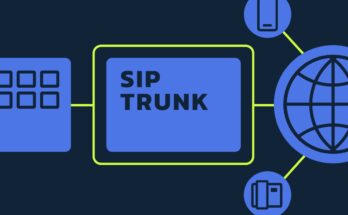Understanding your skills and abilities is crucial when it comes to career planning and personal growth. Not only does it help you determine the best job for yourself, but it also highlights areas in which you need to improve. Being aware of your capabilities makes it easier for you to set goals that are realistic and achievable.
When embarking on a job search, it is important to approach the process strategically and with a clear plan in mind. It is no secret that searching for a new job can be a daunting and time-consuming task, but with the right approach and mindset, it can also be a rewarding opportunity for professional growth.
The first step in understanding your skills and abilities is to take an inventory of what you already have. However, identifying skills and abilities is a difficult task due to the ambiguity and multiplicity of definitions for these terms. Skills are generally seen as the practical, observable manifestations of a person’s abilities, while abilities are more abstract, innate, and potential. Soft skills are interpersonal and social, while hard skills are technical and teachable. Therefore, it is important to have a clear understanding of these terms to make a comprehensive list of your skills and abilities.
Once you have a list of your skills and abilities, you should also consider potential weaknesses. Although not every skill or ability can be developed to a high level, it is important to identify weaknesses and take steps to improve on them.

Moreover, it is important to think about how your strengths could be used in different professions or job roles. Creativity is key when identifying the applicability of your strengths in other contexts. For example, if one of your strengths is an organization, this could be useful for an administrative role just as much as a management position.
Another important step in career planning is researching the job market. However, with the ever-changing job market, it can be difficult to stay informed about current trends. Utilizing online resources, such as job search websites like Indeed or Monster, can help you stay up-to-date with the latest job postings, locations, salary ranges, experience levels, and more. Professional networking sites like LinkedIn provide helpful insights into what employers are looking for in their candidates. Social media sites such as Facebook and Twitter can be great tools for researching companies’ hiring practices and staying up-to-date on industry news and trends.
Networking is another key aspect of career planning. Attending events and conferences related to your industry is a great way to meet people who are already established in the industry and have valuable advice for those just starting out. Additionally, using social media platforms such as LinkedIn, Twitter, or Facebook to connect with professionals in the same field as you can help you build meaningful relationships. This type of relationship could open up more doors down the line too! Contacting potential mentors directly by email or phone call is also an effective way to build a meaningful relationship.

When it comes to finding job openings that are right for you, utilizing online resources can be an effective strategy. Job search websites like Indeed or Glassdoor are great resources that allow you to search by location, industry, and company name. These sites often provide detailed information on companies, including reviews from current or past employees as well as salary ranges for certain positions. This type of information can give you a better understanding of what it might be like to work for certain companies and help you make an informed decision.
Once you have identified potential job opportunities, the next step is to update your resume and cover letter. An outdated resume or cover letter can be detrimental to your job hunt and may even prevent you from landing an interview. Therefore, it is important to make sure that these documents are as professional and polished as possible. Reviewing them for any errors or typos, ensuring that all information is accurate and up-to-date, and making sure the formatting is consistent throughout the document are key steps in updating your resume and cover letter. Consider adding any new skills or experience you’ve gained since you last updated your documents, which will help employers better understand what you bring to the table when they look at your resume and cover letter.



